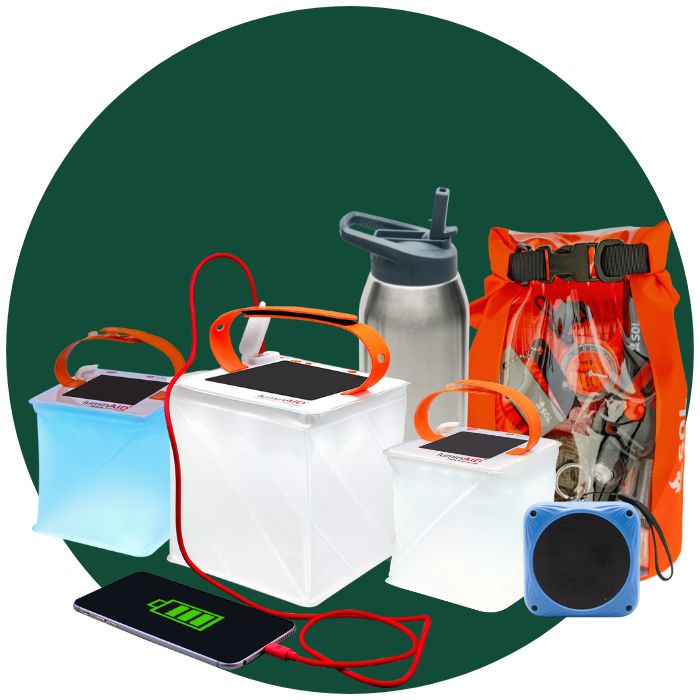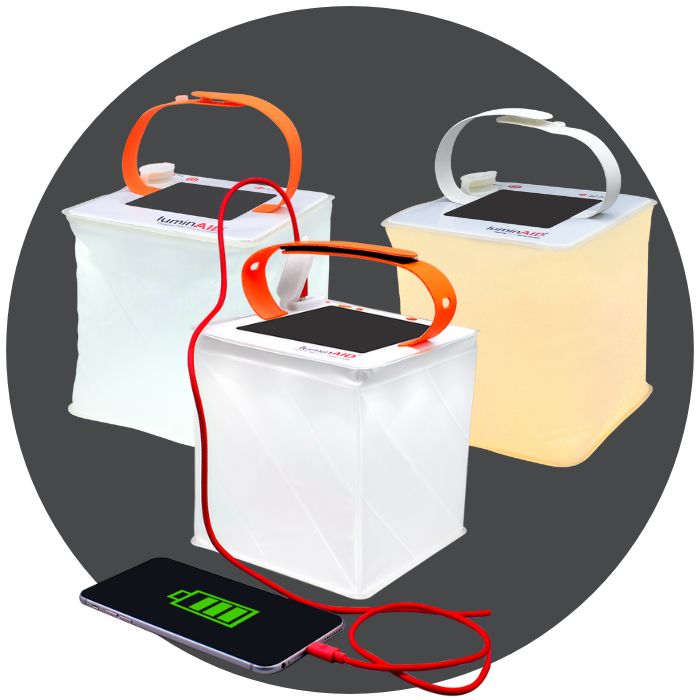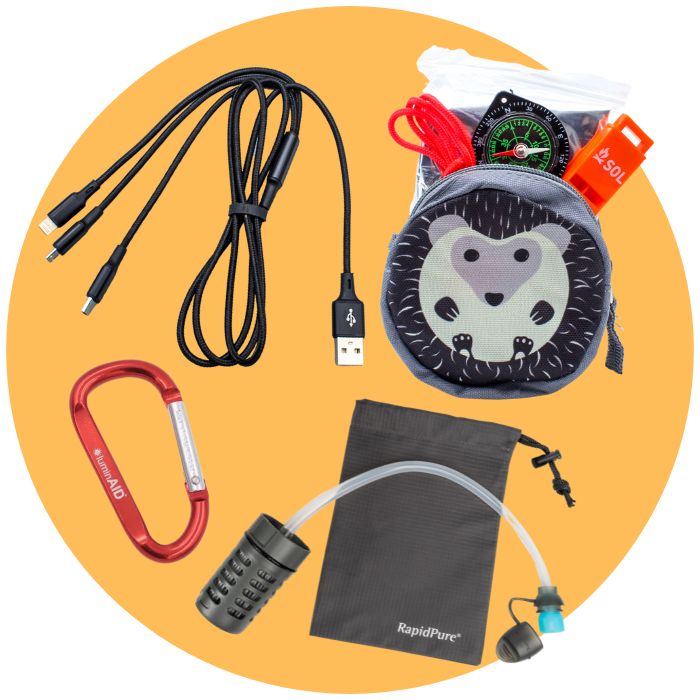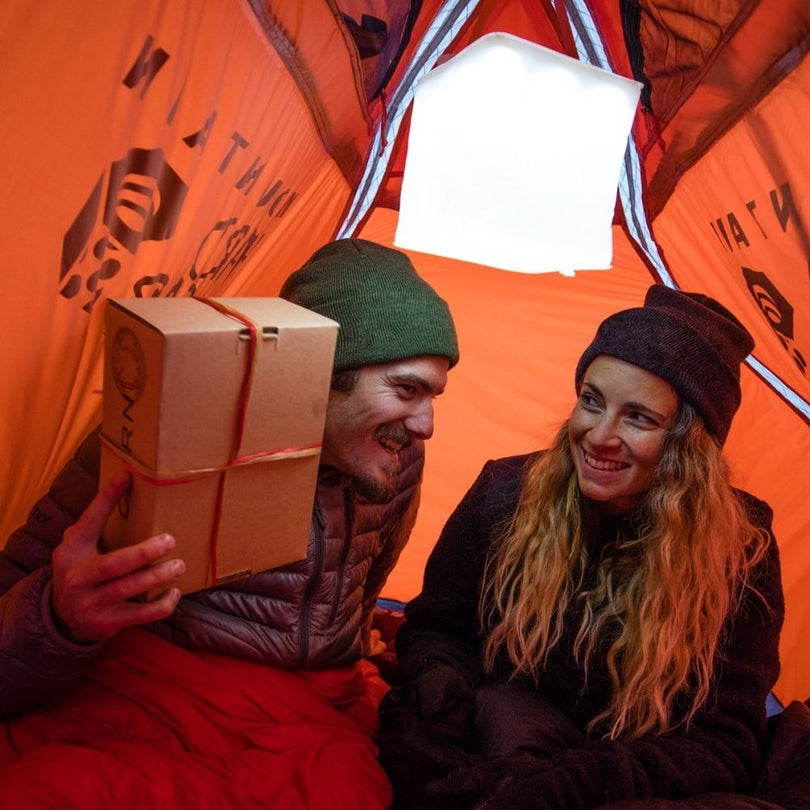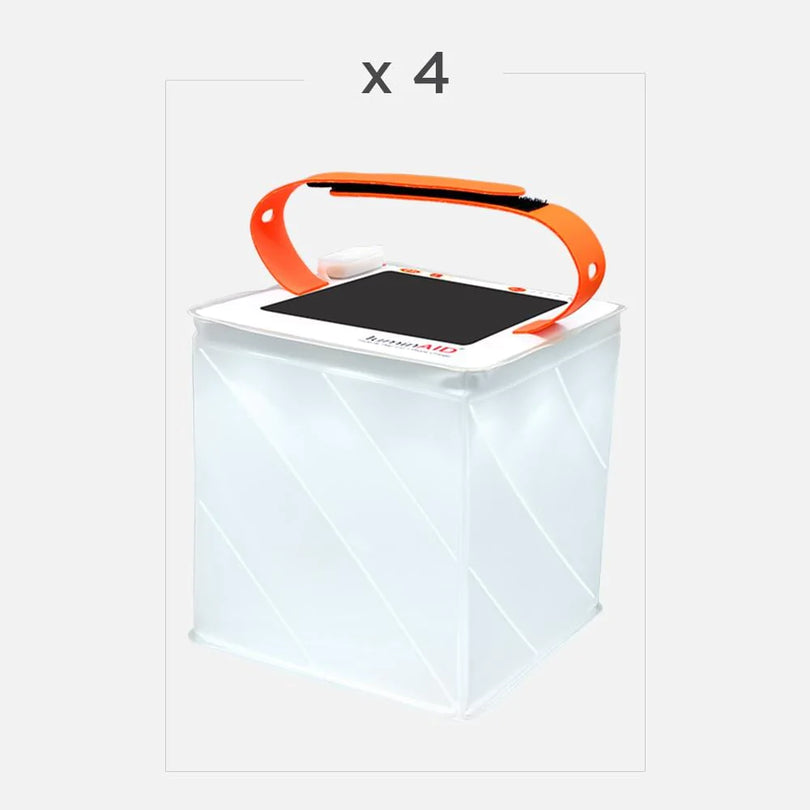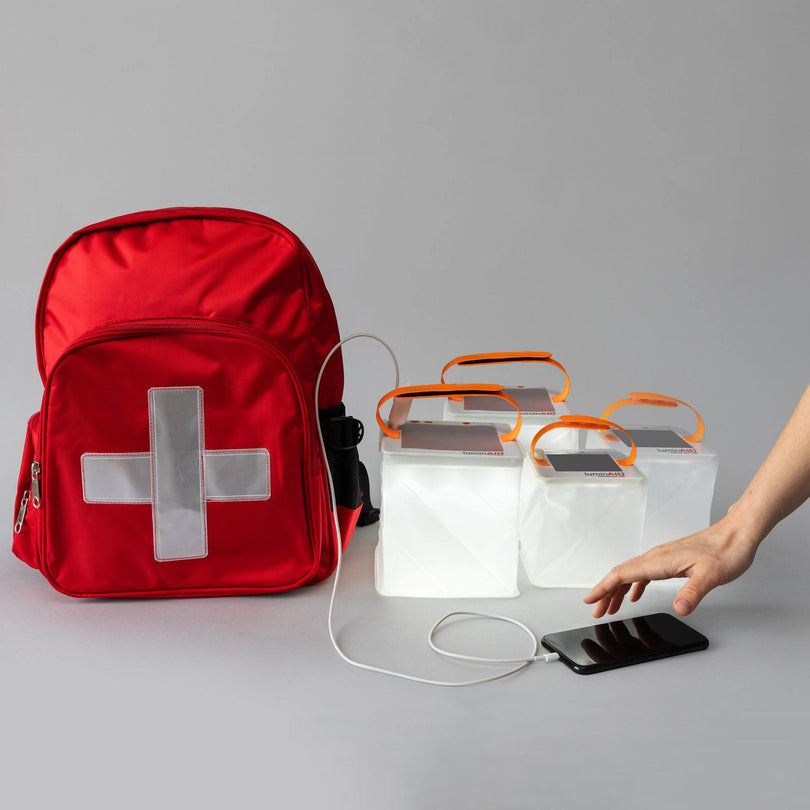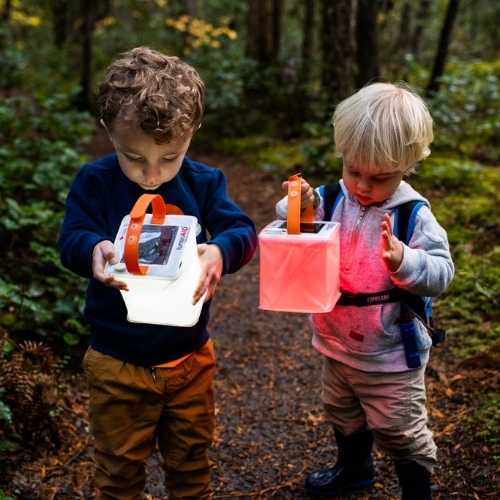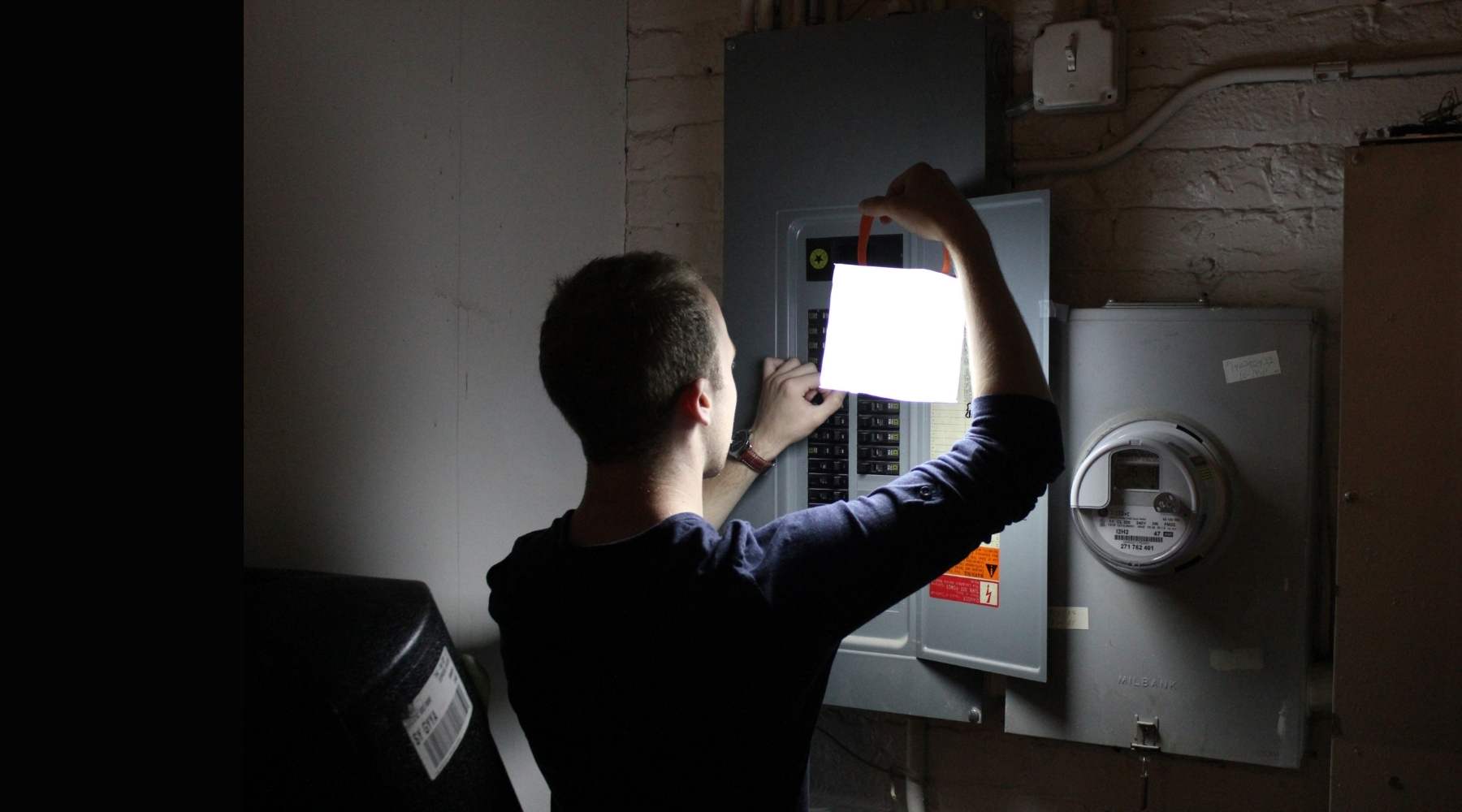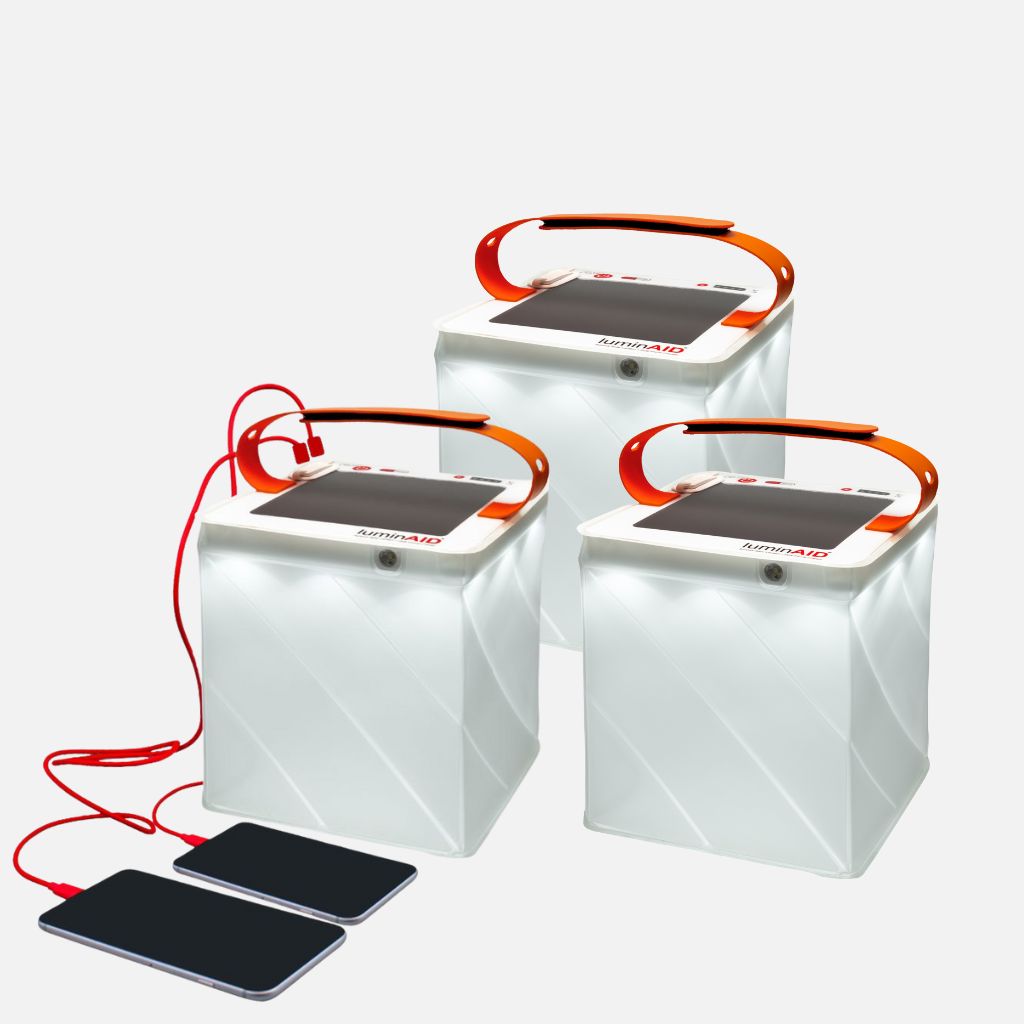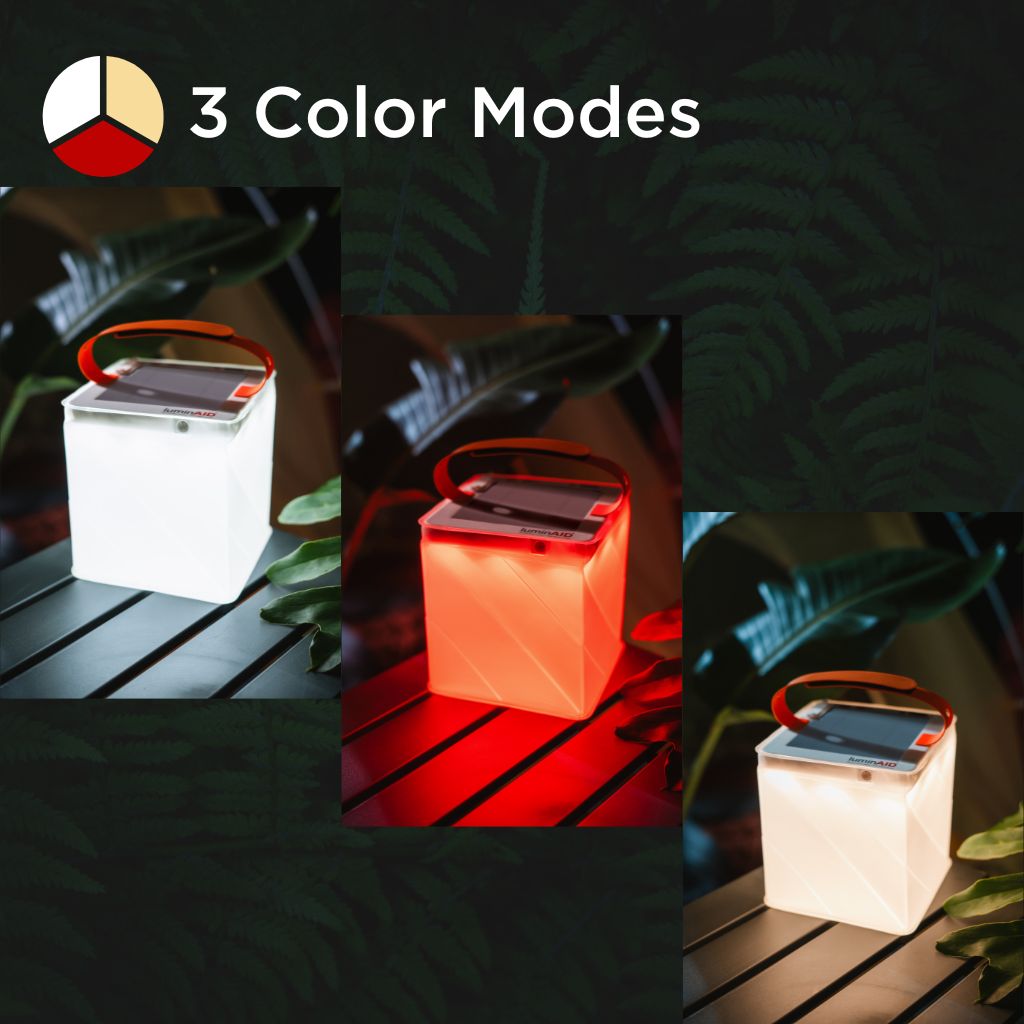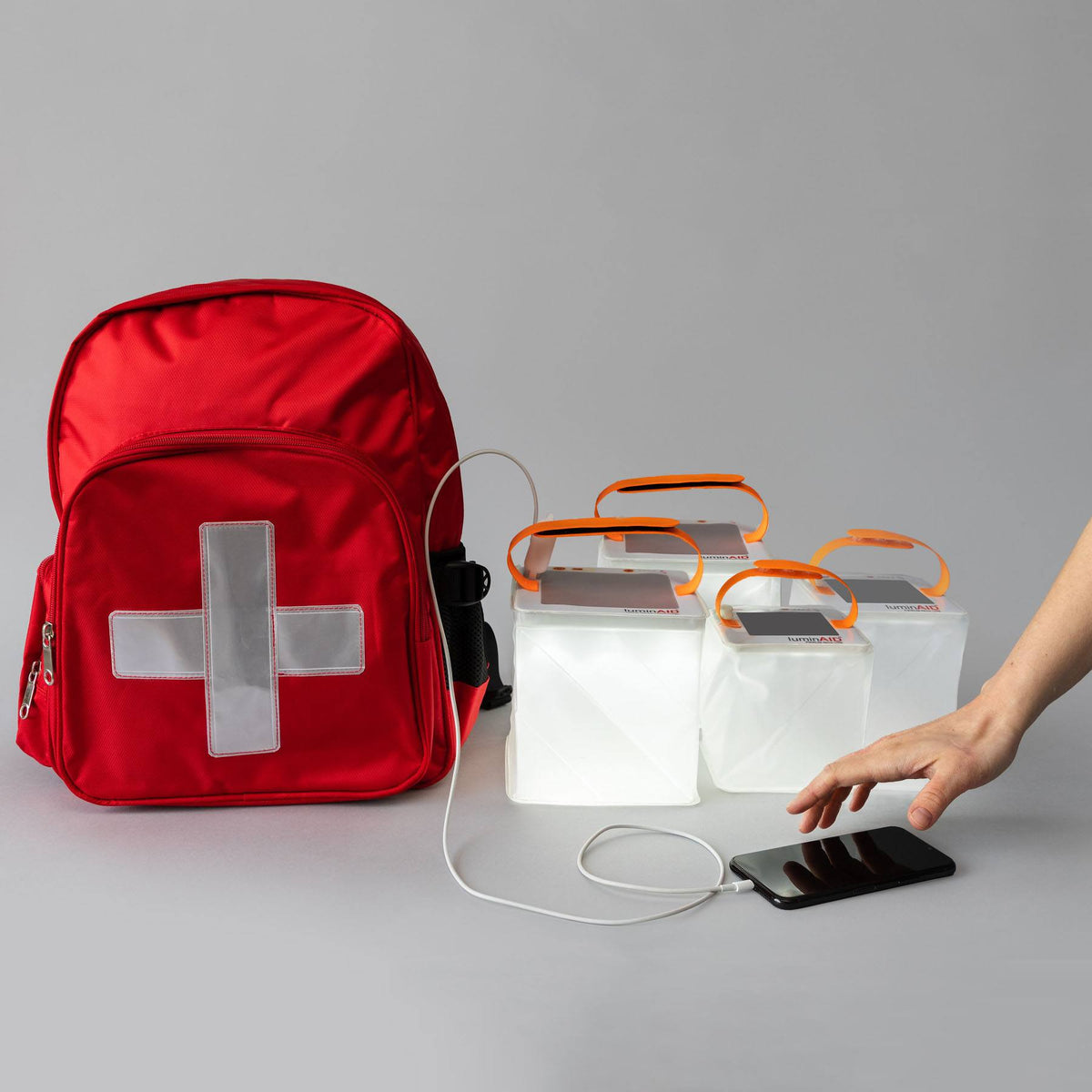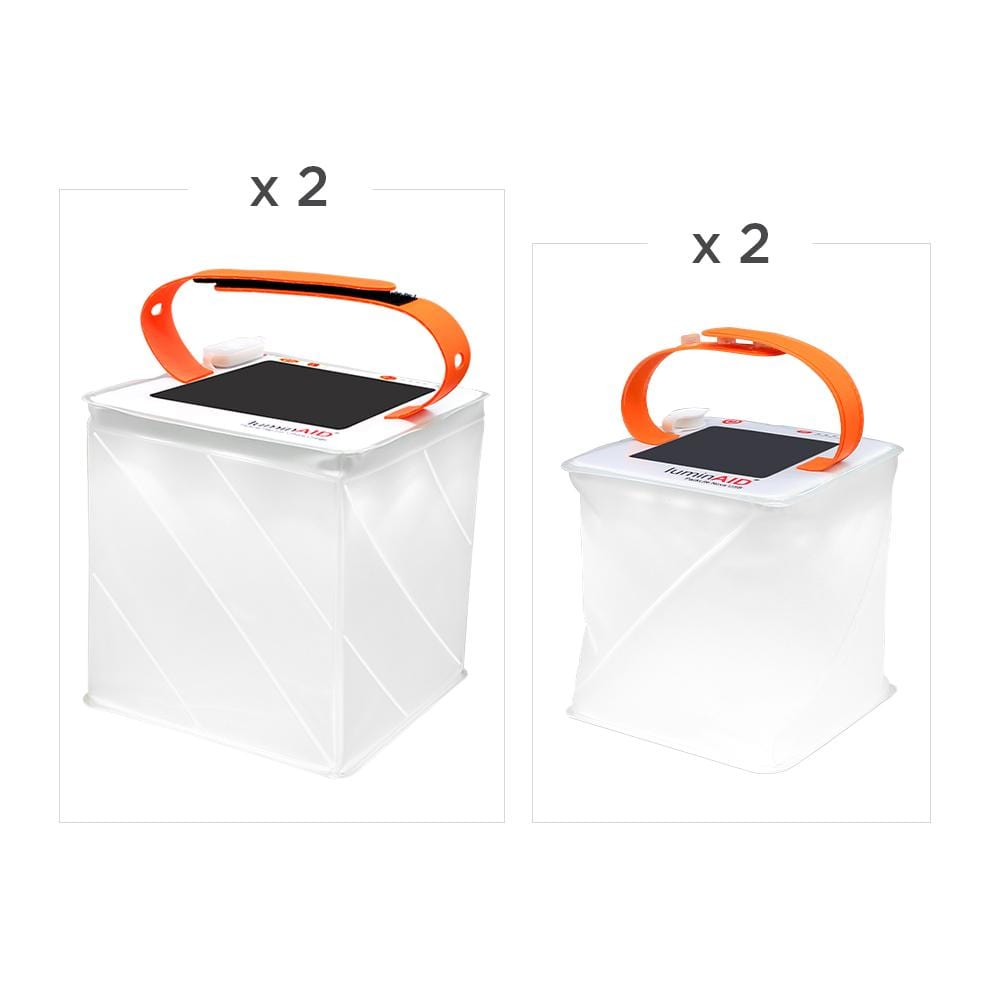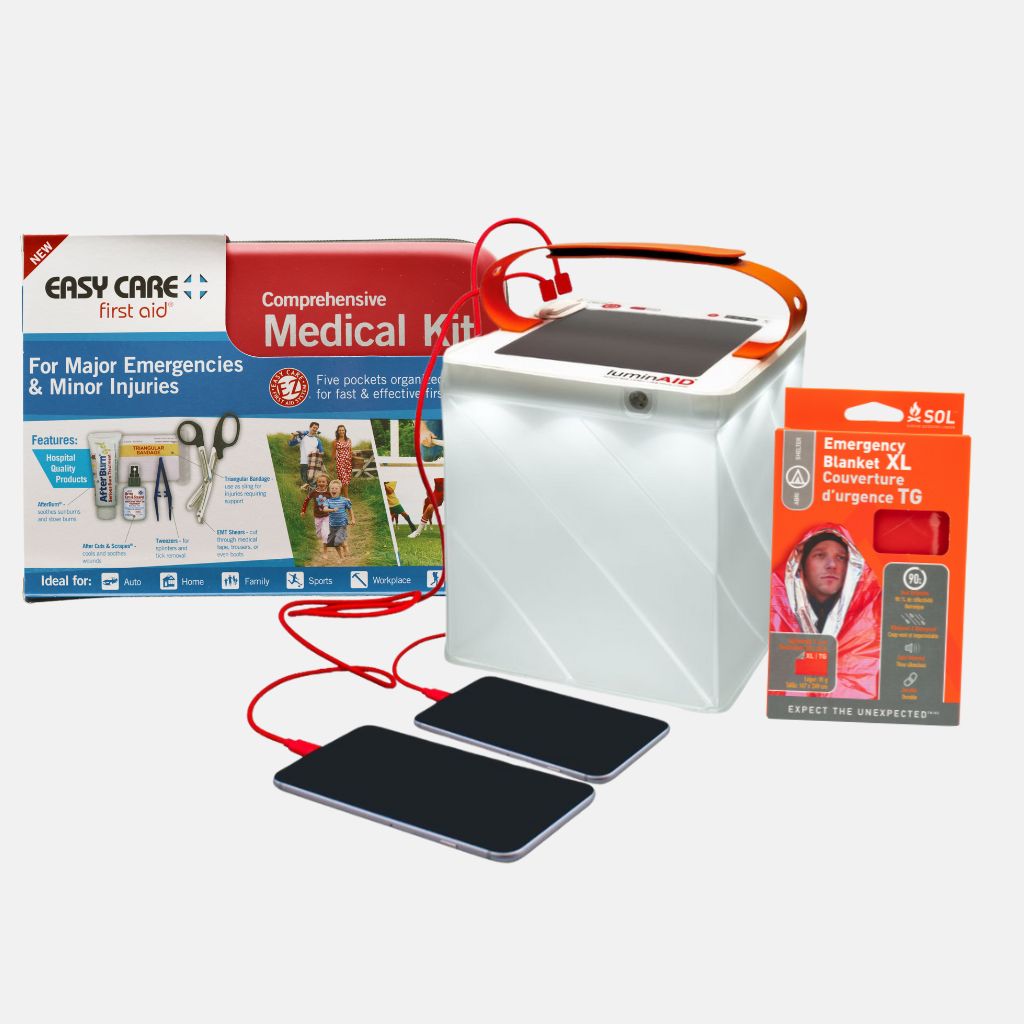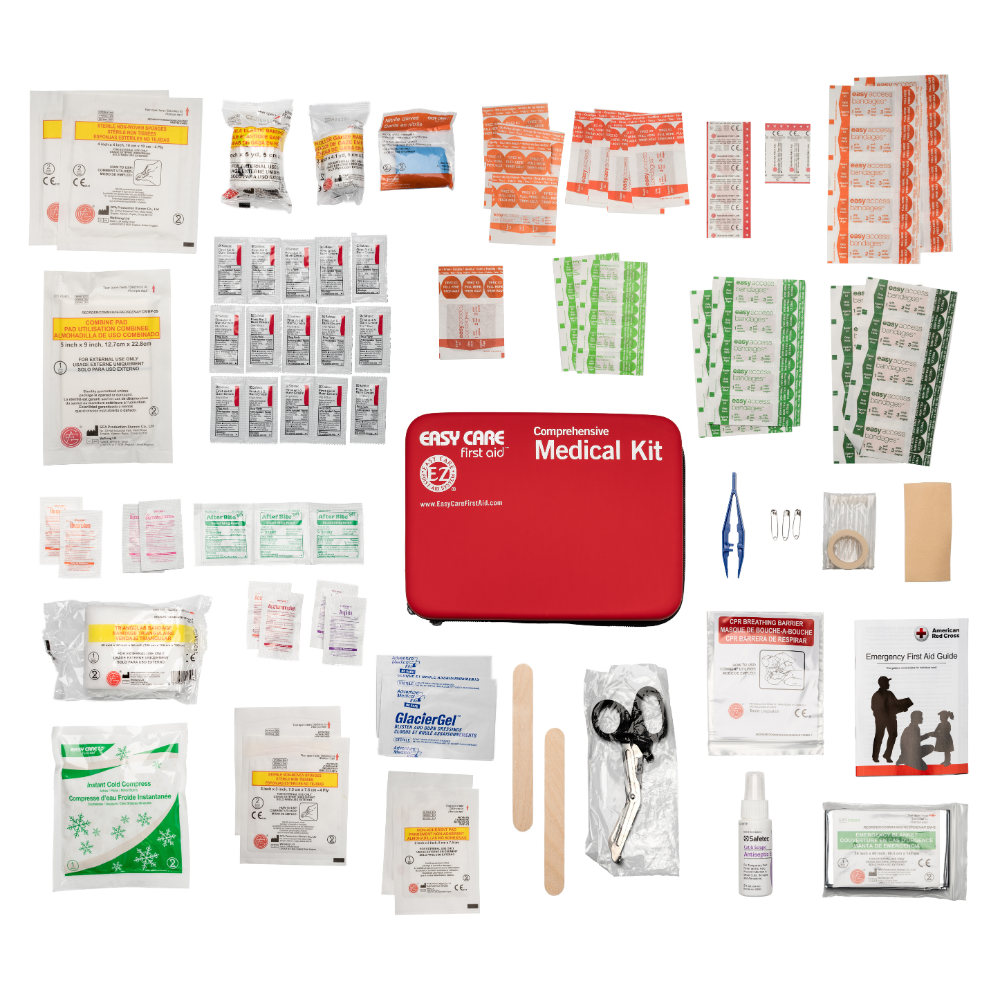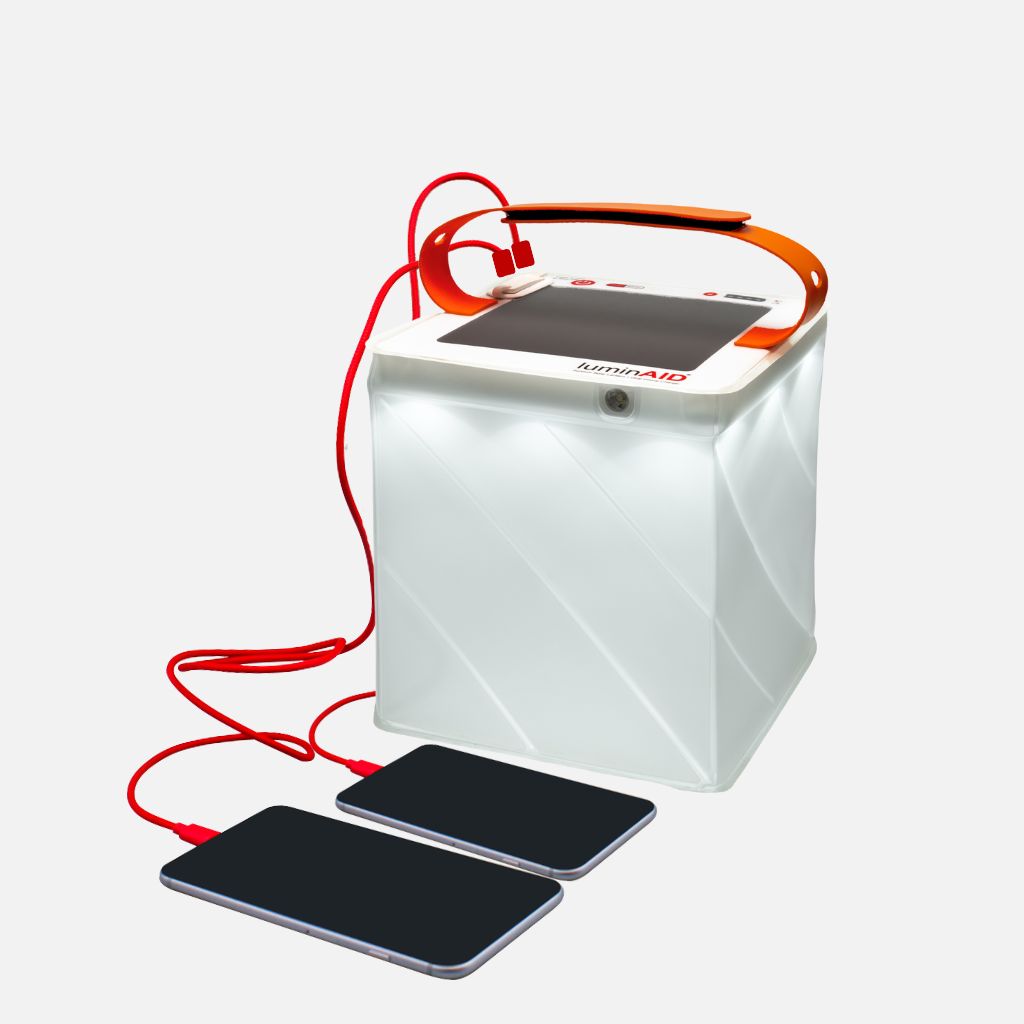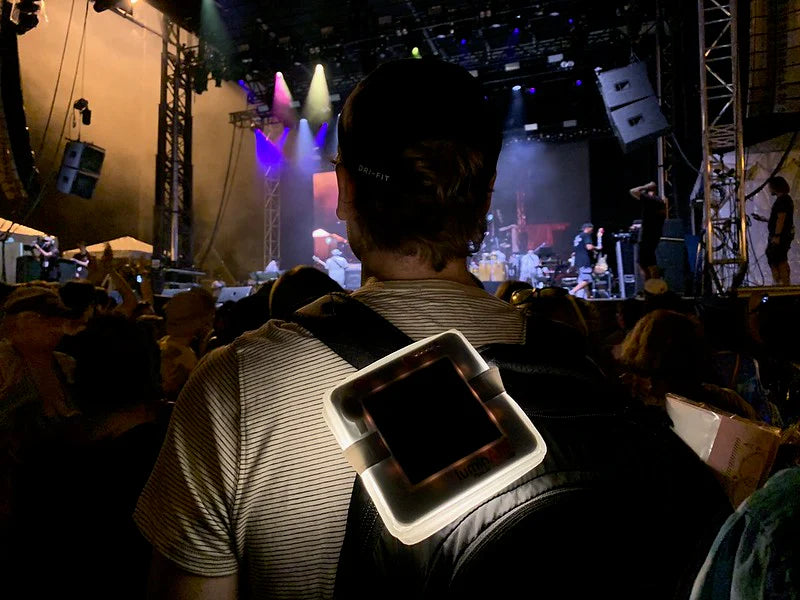Power outages can happen at any time, and it’s important to be prepared. That’s why we’ve put together a list of the 20 most important do’s and don'ts for before, during, and after outages. When you follow these guidelines, you’ll be set for success in any power loss scenario.
Seasonal power outages
Power outages happen throughout the year, but they often have different causes depending on the season.
Summer power outage
Summers can get hot, and the heat is unbearable for many. That’s why air conditioning consumption skyrockets in many places across the country during summer months. Both A/C and portable fans are a huge electricity draw, which puts immense stress on power transformers. In extreme cases, they can overheat and shut off, causing a power outage.
Summer storms and tornadoes can also damage power lines and transformers, creating outages. Hurricane season runs from June 1st to November 30th, and heavily impacts Florida, the Carolinas, Louisiana, Mississippi, and Texas. Outages are to be expected with hurricanes, which also have the potential to affect the rest of the southern and eastern US.
Summer also brings wildfires, which can cause both planned and unplanned outages. Wildfire season usually lasts from July to October when the weather is hottest and driest. If severe weather, such as a windstorm, is forecasted, local authorities may plan a Public Safety Power Shutoff (PSPS). This protects the environment from wildfires by preventing any downed lines from sparking and igniting grass or foliage. Wildfires themselves may also interfere with power lines and cause outages.

Winter power outage
Cold weather is the culprit of many power outages. Electrical systems are built to function best within a certain temperature range, and if it is not met, this extra stress on the system is more likely to result in an outage. Additionally, ice and high winds can cause damage to power lines which leads to loss of electricity.
Though most northern states experience snow each winter, their infrastructure is still vulnerable to power outages. Southern states that rarely experience winter weather are even more susceptible to power loss during a winter storm. For example, the 2021 Texas winter storm caused power outages for more than half of the state’s population.
14 Essential Power Outage Survival Tips
Planning ahead is essential. Here are 14 things you can do now to make your next power outage stress-free.
Get a source of electricity
It’s a great idea to invest in a generator–it serves as a backup power source for your home. First, figure out what size generator you’ll need. How many appliances would you like to power? Be sure to choose a generator with a slightly larger capacity than you think your home will require. This could range from a portable generator to one that attaches to your home.
If you’re looking to get a generator that can power your entire house, be sure to get it professionally installed. Many generators use natural gas, which is dangerous to work with, especially if you are inexperienced. An installation of this kind requires a licensed professional, and DIY attempts are illegal in many areas.
Never use a generator inside or in any partially enclosed space. Doing so puts you at extremely high risk for carbon monoxide (CO) poisoning. An average of 60-70 people die each year due to generator-associated CO poisoning. Thousands more are hospitalized. Familiarize yourself with symptoms of CO poisoning–it could save a life.
Think about food storage
Have a good supply of non-perishable foods, such as canned goods and freeze-dried meals. Think about the size of your family, including pets, and set aside at least 3 day’s worth of food per person in a designated emergency storage bin. We recommend a week’s supply to be safe, since many outages are long-term.

Use your fridge and freezer food wisely–a fridge without power will keep food cold for up to four hours, while a full freezer will keep food cold for up to 48 hours. Investing in a deep freezer will protect your food for the longest amount of time, especially if you keep it shut tight.
Prepare in advance
It’s essential to have an emergency preparedness kit. Not only are they useful in a power outage, they are life-saving in many natural disasters. These kits contain all necessary tools for sustaining yourself without electricity or clean water.
Pack an at-home emergency kit that accommodates each of your family members, and pack a go bag in case evacuation becomes necessary.
Stay informed
During power outages and disasters that often come with them, emergency radio channels broadcast important safety information and breaking news. Be sure to know which channel does this in your area, and have a battery-powered radio or hand crank radio readily accessible in your home.

If you prefer to access these alerts online, bookmark official government sites that post emergency alerts for your area. Make sure you have a portable phone charger to keep your phone’s battery full, and check that you are able to access the internet via cell service, as your WiFi will be offline during an outage. A radio is a great backup in case you cannot connect to the internet.
Know your escape route
Power outages can be indicators of a larger emergency situation that could put your life in danger. Because of this, it’s important to know when to evacuate your home. Make a plan for the conditions in which you and your family will pack up and leave–it could be three days with no electricity, winds higher than 60mph, or a severe winter storm warning. Once those conditions are reached, agree that you will leave at once. This prevents you from “toughing it out,” just to find yourself in a worse situation where you are forced to evacuate.
Plan where you will go and what you will bring, as well as where your family members will meet if they are not all at home when they decide to evacuate. Make lists of friends’ addresses, close by shelters, and geographically protected locations. The more detailed your plan, the lower the risk of miscommunication and potentially leaving a family member or important tool behind during evacuation.
Stock up on water
When you lose power, your water access may be affected as well. To prepare for this possibility, keep a 3-day supply of drinking water per person in your home. At a minimum, this should be one gallon per person per day. We recommend at least a week’s supply of water–it’s much better to have more than you need rather than less. You can either stock up on cases of bottled water, or if you want to conserve plastic, you can store your water in five gallon jugs. These are refillable, and perfect for all at-home emergencies.
Keep extra water handy for washing and flushing. This protocol is important to be prepared for any emergency situation, especially if you have well water, which uses an electric pump. Municipal water is less likely to be affected by an outage, but you should still prepare for this scenario.
Use gas to cook
If your home has a gas stove, you’re in luck during a power outage. You can continue to use this appliance for cooking, as it is not dependent on electricity. Many homes have electric stoves, though, which are not easy or cheap to replace. A simple way to have a functioning stove during an outage is to get a gas-powered barbecue grill.

Make sure to always use the grill outside in an open space, to prevent carbon monoxide poisoning. Since there will likely be a run on gas for grills during a power outage, avoid this by keeping your tank at least half full at all times. Check its levels every time you use the grill, and don’t postpone a trip to refill your tank.
Keep your car's tank full
There will also be a run on gasoline during a power outage. It’s a great idea to keep your car’s tank full in case the outage necessitates evacuation–you want to be able to drive 200-300 miles without stopping for gas.
To prepare your car for a long drive, always keep the gas tank at least half full. It’s not a bother at all if you make it part of your routine! No matter what, make sure to fill up your tank if there is a storm warning–storms often cause power loss.
Stock up on batteries
Check what kind of batteries your flashlights and radio require. Keep extra batteries for these tools on hand at all times. Store them in an easily accessible place, and check to make sure you have at least enough batteries for a full battery replacement of each tool. We recommend that you have enough on hand to change batteries twice.
If you run out of batteries, these tools can be replaced by your phone in a pinch. It’s a great idea to keep a portable solar phone charger on hand so your phone never runs out of battery. These chargers don’t require any batteries, and their charge is completely renewable for an unlimited amount of time.
Get a solid source of light
Lanterns are an ideal light source in emergency situations such as power outages. They illuminate large spaces using dispersed light, unlike flashlights which can be blinding. LuminAID’s Power Lanterns are the perfect choice. They are solar powered, and recharge whenever they come in contact with daylight. Plus, they double as a phone charger! They’re lightweight, durable, waterproof, and pack flat to store. A combination of Solar and Power Lanterns are perfect for your power outage needs.

These lanterns are ideal for every emergency situation–never worry about batteries again, and enjoy the peace of mind that all of your electronic devices are charged!
Protect your pipes
If you live somewhere with cold winters, you know about the risk of burst pipes. Winter power outages increase this possibility, because without heating, the pipes inside your house may grow extremely cold.
To prevent burst pipes, insulate any pipes that could be exposed to external temperatures in the event that your heating system fails. Seal all doors that lead outside, especially garage doors, to trap heat indoors. If you’re still worried about your pipes freezing, turn on your faucet to a drip.
In a situation where the temperature in your home continues to drop, shut off your main water valve and run all your faucets until the water is gone. Flush all toilets using the same method. This ensures that your pipes are safe from bursting, even if they freeze.
Know your medical needs
If you or a family member have medical needs that involve refrigerated medication or electronic equipment, make a plan for these items during a power outage. Consider having a backup cooling plan or power source at the ready, so it’s easy to implement when the power goes out.
Additionally, talk to a medical professional about your backup plan and ask for advice on how to prepare your medical necessities for the next power outage.
Don’t discount the effect of extreme heat on the body during a power outage either. Heat is especially dangerous for people ages 65 and older, and people with chronic medical conditions such as heart disease, diabetes, and obesity. If a friend or family member fits this description, help them prepare for summer outages and check on them if the power goes out.
Monitor carbon monoxide levels
Carbon monoxide poisoning is a serious risk during power outages, so take every precaution you can to prevent it. Carbon monoxide (CO) is a colorless, odorless gas that is produced by burning fuel. If the fuel is burning in an unventilated space, CO levels can rise to a deadly level–therefore, you must only use camp stoves, generators, and grills outside and away from enclosed areas.
To ensure the safety of you and your family members, get a CO detector and install it in any location that has any risk of CO buildup. Battery-powered detectors will work even when the power is out–be sure there is at least one in your household during an outage.
Always remember to change the batteries in your CO detector.
Keep your kids busy
Power outages can be exciting for some kids, and boring or uncomfortable for others. No matter your child’s reaction, the most important thing (after their safety) is encouraging them to have fun. Instead of emphasizing what they can’t do without electricity, focus on all of the exciting activities that don’t require power.

Keep a stock of books, art supplies, puzzles, and games that can be used for instant entertainment. Plus, a solar lantern with fun colors can lighten the mood and be used for shadow puppets!
6 tips of what not to do
Chances are, you’ve experienced a power outage or two. It’s also very possible that some of your habits (especially during the summer) are actually making power outages more likely. Here are some tips on how to avoid this, as well as what not to do once the power has gone out.
Don't run A/C lower than 78 degrees
The lower you set your A/C temperature, the more energy it draws. To avoid overwhelming the electrical system and to save yourself energy costs, set your A/C at 78 degrees or above. In fact, this is the Department of Energy’s recommended A/C temperature if you’re at home. To save even more energy, set your A/C at a higher temperature when you leave the house.
Don't open your fridge too much in hot weather
The more you open your fridge, the more energy it requires to maintain its temperature. To minimize your draw on the power grid and save energy costs, avoid opening your fridge unless you have to, and be sure to shut it right away.
Use short cycles for heavy duty appliances
Appliances like washing machines and dishwashers also consume a lot of energy. To reduce stress on the power grid and save money on your electrical bill, select short cycles for these appliances. Only run full loads to save additional energy.
Don't make phone calls during outages, text instead
During a power outage, people may be more likely to experience an emergency. For example, some people rely on electronic medical devices, while others may be injured by a storm which caused the outage. To ensure that their 911 distress calls are answered, stay off of the phone line and communicate by text message instead. If you must make a call, follow FCC guidelines and keep it brief.
Stay away from downed power lines
If you are outside during a power outage, keep at least 35 feet away from any downed power lines. Even if the wires don’t seem to be live, assume that they are–neglecting to do so could be deadly. Electricity can travel unnoticed through the ground, and you can be electrocuted if you don’t pay attention to your surroundings. If no one has reported the downed line yet, report the outage to a local electrical company. If someone makes contact with the downed line or surrounding area, call 911 immediately.
Don't eat the food
If the power comes back on and you’re not sure whether your fridge has kept your food cool, don’t eat it. Getting extremely sick is a lot worse than another grocery trip, even if it’s a bit spendy.
Obviously, if the power goes out for 20 minutes, your food is fine to eat. While your fridge should technically keep food cold for 4 hours, it’s a great idea to double check that it functioned properly. If the outage lasted for longer than an hour, use a food thermometer to check the internal temperature of each fridge item. If it’s 40 degrees Fahrenheit or warmer, toss it. If it’s colder, it’s safe to eat!
Summary
Since power outages are so common, it’s essential to prepare and have a plan in place. With these 20 tips, your next power outage experience will be stress-free and completely safe. Plus, you can follow energy-saving protocols to make outages a little less likely and your bills a bit easier to pay.
The Department of Homeland Security’s campaign found that “forty-six percent of individuals expect to rely a great deal on people in their neighborhood for assistance within the first 72 hours after a disaster.” With your prep work, you’ve got yourself and your neighbors covered.

